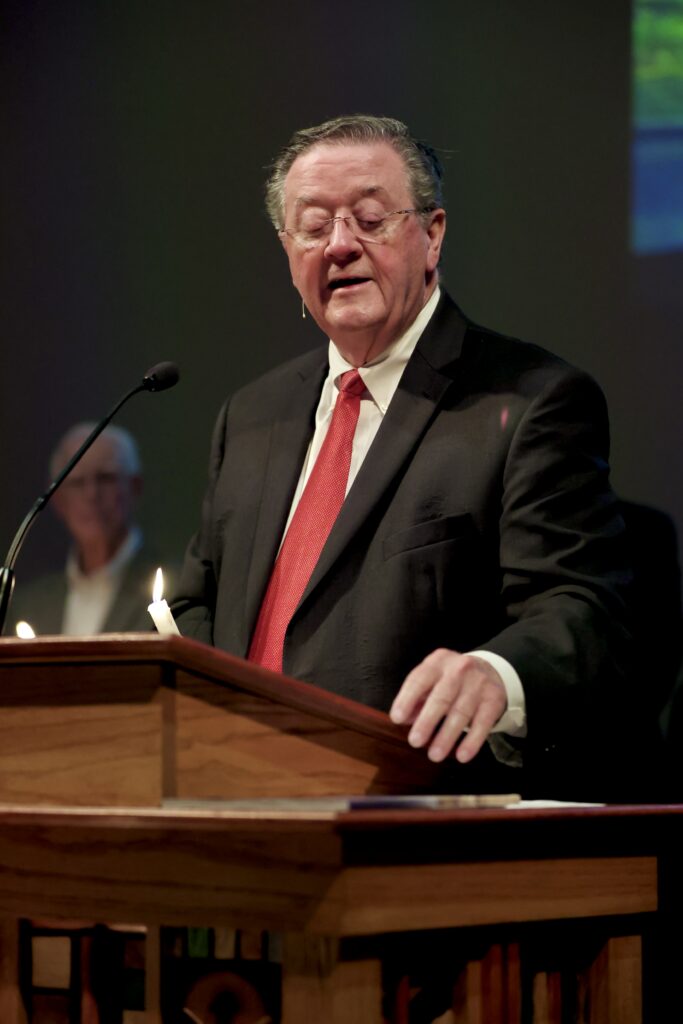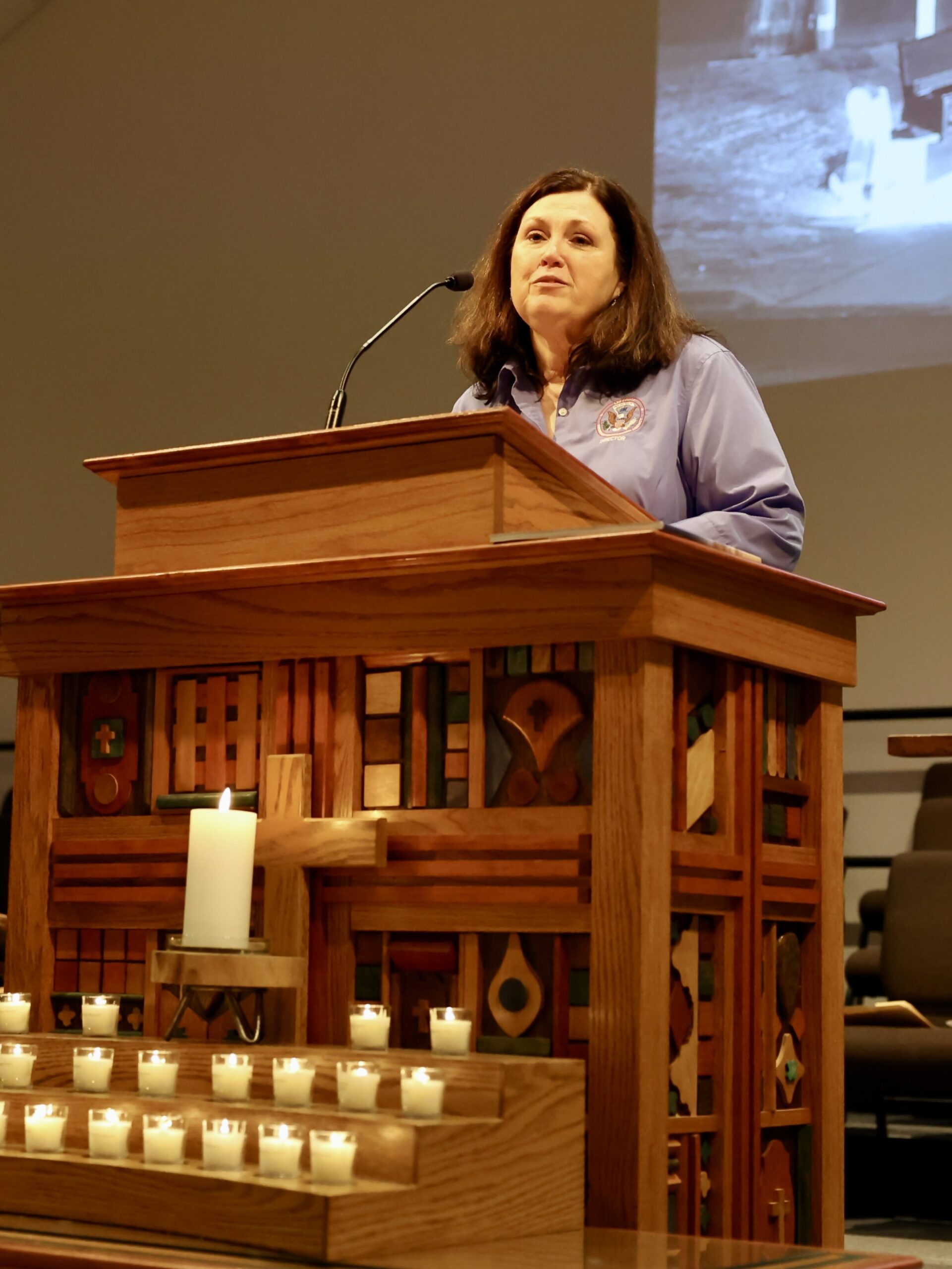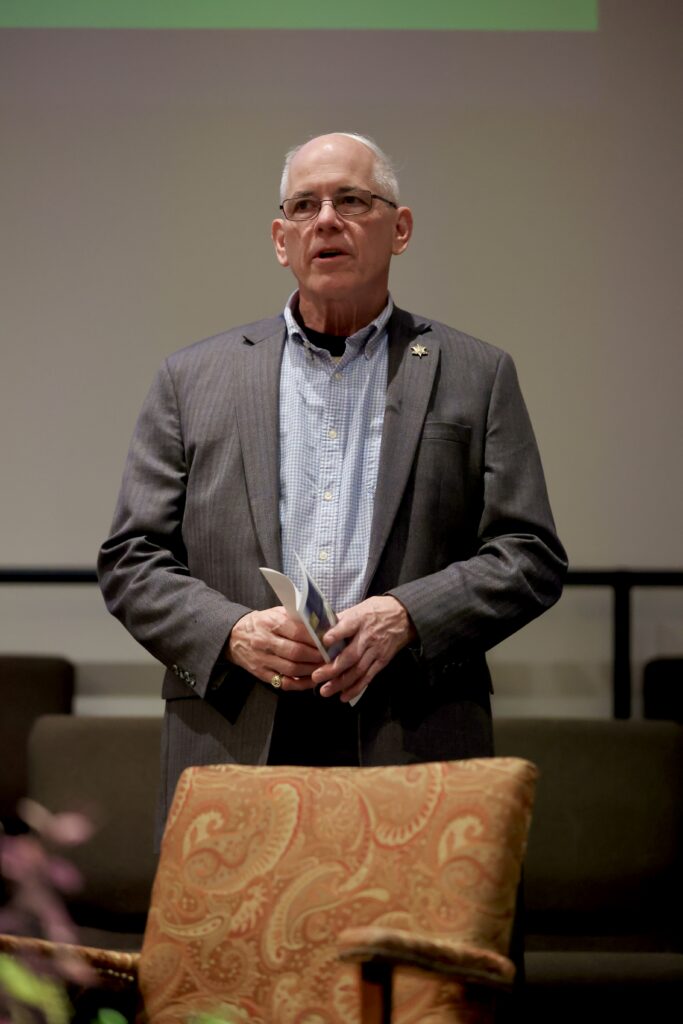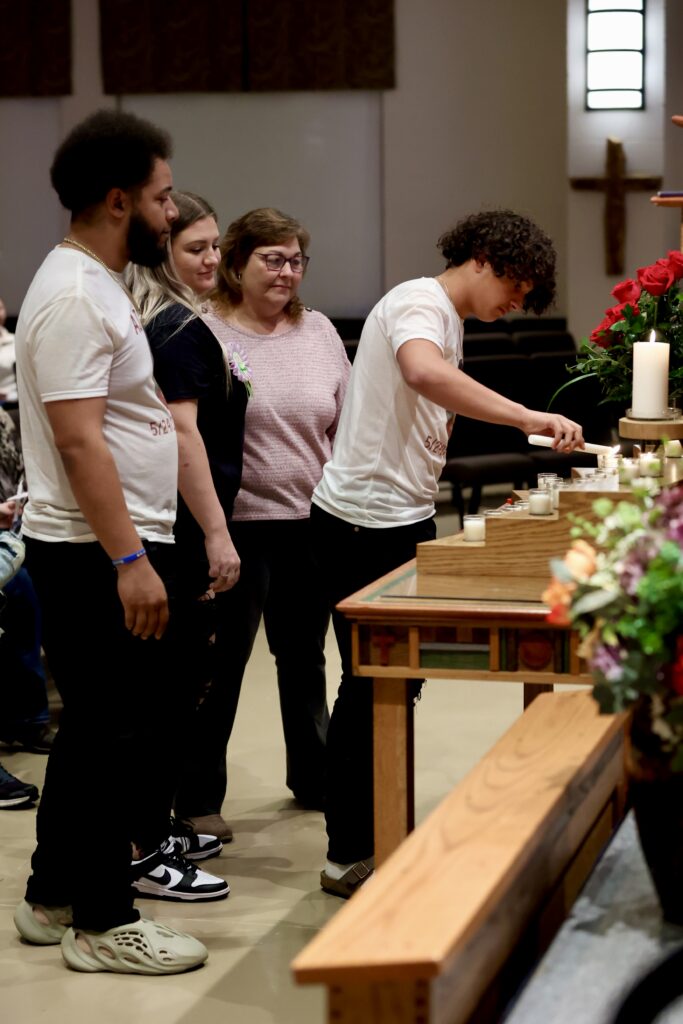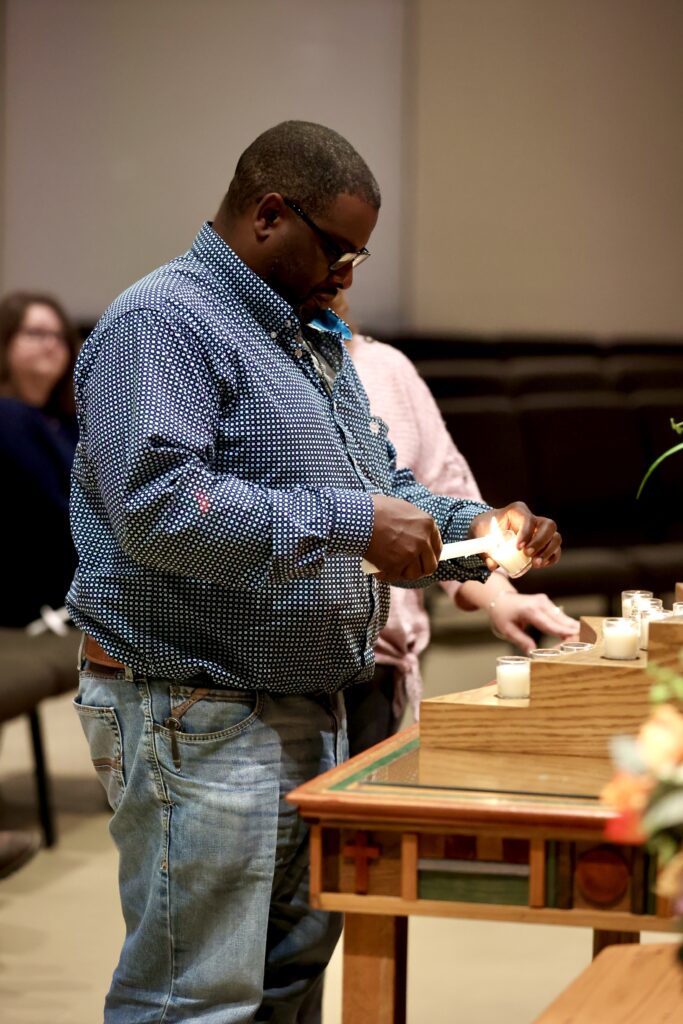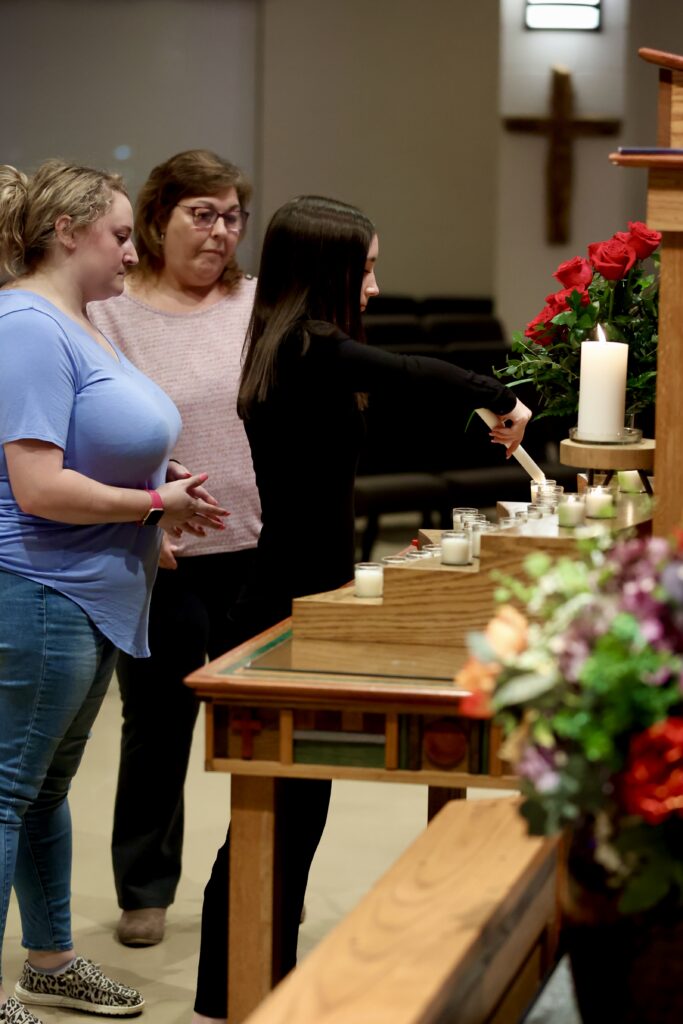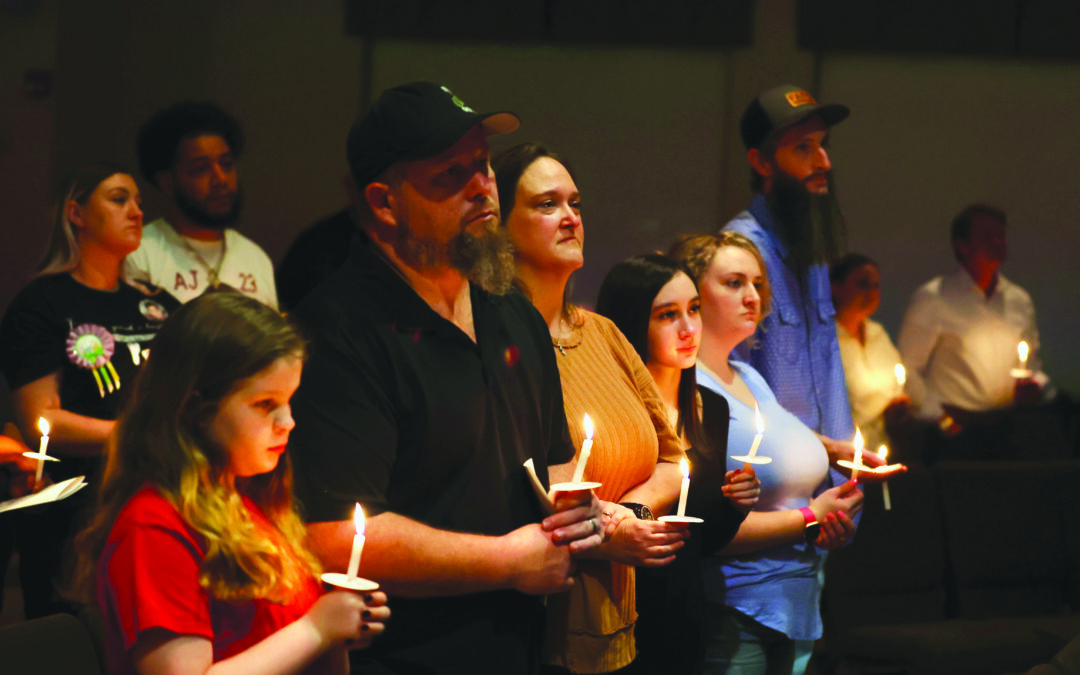Rememberance, Reflection, Resilence
BY STEVEN STIEFEL
FOR THE OBSERVER
BEAUREGARD — Survivors of the March 3, 2019, tornado in Lee County gathered Sunday at Providence Baptist Church in Beauregard to mark the fifth anniversary of the day and to honor the 23 people killed by the storms.
Family and friends of the fallen lit candles as the names were read by Rusty J. Sowell, the church’s senior pastor.
The tornado, Alabama’s eighth deadliest, destroyed 230 homes and severely damaged 141 others, leaving a swath of destruction nearly a mile wide. The National Weather Service rated it as an EF-4 on the Enhanced Fujita scale, with winds reaching speeds of up to 170 miles an hour. That year marked the fourth most active season on record, behind 2008, 2011 and 2004. During the 2019 storm, winds uprooted trees and reduced homes to hurling debris spread over 24 miles.
The devastation left from the deadliest natural disaster in county history left many wondering whether the community could recover, but the response has demonstrated strong resilience as everyone came together to rebuild. Meanwhile, the work of healing and growing stronger together moving forward continues, as survivors celebrate the legacy of those they lost. The pain remains, but their memories bring comfort as time passes.
Kayla Melton, mother of the youngest victim, 6-year-old Armondo “A.J.” Hernandez, expressed thanks for the anniversary program.
“Definitely, the five year anniversary program has been the best overall,” she said. “This year felt a bit more cozy with all of the extra people that came out to support us.”
Melton said enduring such a lost has meant relying on family and her faith in Christ.
“He’s the ultimate creator and has a plan,” she said. “Questioning why things happen is beyond us.”
Kayla Grimes came to remember family members Marshall Lynn Grimes, Sheila Creech and her friend, Taylor Thornton. She said she feels that survivors can continue to grow together through events like Sunday’s anniversary program.
“At events like these, we can continue to come together and pray on the things that happened in the past and knowing that we’re all here for each other,” Grimes said. “My family were all very loving and gave back to the community in any way possible. They were always there for me, and all of them gave back to help others.”
Irma Gomez-Moran was remembered by daughter Andrea, who said it is important to remember those lost.
“When something bad happens, everyone knows about it,” she said. “When we get together, we need to talk about it. It is comforting just knowing there are still good people out there and strong communities. That’s the great take-away from it. I decided to stand up during [Sunday’s] program and speak because I know that my mother is here with us, and they’re all watching over us. I remember my mom as the great woman she was.”
Another attendee remembered family members Florel Tate Stenson, Eric Jamal Stenson, Henry Lewis Stenson and James Henry Tate. He called the program “really nice in how the community came together and still comes together. We’ve always been a tight-knit group in Beauregard. We all respect and love each other. That’s basically what it’s all about.”
Others who died locally on March 3, 2019 included Charlotte Ann Miller, David Dean, Emmanuel Jones, Felicia Woodall, Jimmy Lee Jones, Jonathan Marquez Bowen, Maggie Delight Robinson, Mamie Roberts Koon, Mary Louise Jones, Mykala Waldon, Raymond Robinson Jr., Ryan Pence, Tresia Robinson and Vicki Braswell.
The East Alabama Medical Center director of spiritual care, Laura Eason, called it “the worst day of my life.”
“I can’t imagine what [the families] went through,” she said. “In the days following, people asked, ‘What does Beauregard need? What do they need? What can we do? How are they ever going to get over this? How are they ever going to recover?’ And I remember saying to people, they are never going to get over this. They are never going to get over the loss of those 23 family members. But we’re going to help them get through it.
“I wish I could say we’ve healed, but I think we’ve mended it a bit,” Eason said. “There’s still more mending to go. St. John of the Cross calls it the dark night of the soul. I think we all experience the dark night of the soul. The lowest of lows. The hardest time you’ll ever go through, hopefully, in your lifetime, but that’s when you need God the most, and that’s when you realize you can’t make it alone. You need one another, and you need God.”
Sunday’s event also presented an opportunity to recognize and give thanks to everyone who came together to act during the unprecedented crisis.
“We had a lot of ecumenical response during that time, churches of faith, different faith churches that came about, all of them coming together, working together in different groups,bringing their chainsaws, bringing their ATVs, their skid steers and doing everything they could to help enable us to get to where we need to be to help those who are helpless,” Sowell said.
Eason said the lack of blue tarps on rooftops today says a lot about Beauregard.
“Somebody early on said, with that much damage, it’s going to take a minimum of four years and I think we were pretty much was able to sit down after two years,” he said. “It’s because of your resilience and everybody jumping in and neighbor helping neighbor, and loving one another, and with the help of God, we were able to get through. Those 23 precious souls look down on us from heaven every single day, and are glad that we are in their memory now. Say their names. Tell their stories. And remember that you are not alone. That God is with us every single step of the way. He’s never going to leave us. He’s never going to forsake us. He’s with us, even in your darkest night. Thank you for your resilience, thank you for your witness, thank you for showing the world how strong Beauregard is.”
“Many of you that I’m looking at tonight, I didn’t even know you by name [in 2019], and now I consider a great deal of you to be personal friends,” said Lee County EMA Director Rita Smith.
“It’s a beautiful thing to see the resiliency and the strength that you have shown and the way you’ve honored your loved ones by continuing to press on and press forward.”
Among those lost were a hospital nurse, Maggie Robinson, mourned not only by her family but also by co-workers in the endoscopy department at East Alabama Medical Center.
“You may not have seen the suffering of the hospital staff, because what we do is we put on this armor of professionalism and we just keep going, because we can’t let ourselves think about what’s really happening, empathize with it or we can’t function,” said EAMC Crisis Counselor Deborah Owen. “But I can guarantee you, hearts broke all over that day, and every single person who worked there broke down at some point. Through the years, people have asked me about it, they said, ‘We’ve heard about Beauregard — what’s special about Beauregard?’ And I said, ‘To start with, not one person, not one person was on the ground the night of March third. Every person was recovered. That’s remarkable. That doesn’t happen in tragedy, but it happens here. And it’s because of the people you are.”
Owen said her own home was directly hit by a rare January tornado in 2023, but she drew strength from the victims of Beauregard.
“As I emerged from the basement, I remembered your strength and how thankful I was to be safe and alive,” she said. “I thank you for your friendship, I thank you for the love and I thank you for sharing the joy of rebuilding.”
Sheriff Jay Jones recalled meeting a Florida man who had lost his home to a hurricane, yet he traveled to Beauregard to help clear roads, hand out water and anything else he could do to help.
“This volunteer didn’t have anywhere to live,” Jones said. “He was just getting by day to day, but he dropped what he was doing and came here to help. That’s the kind of people that we need. And thank God for that.
“Driving here tonight, I don’t know, maybe some of y’all noticed it: A really nice sunset, clear sky, sunset,” Jones said. “So, you know, I’d just like to think that maybe that was all those who died who kind of gave us a smile, to just say thanks for continuing to remember them.”
Mark Wakefield, disaster relief and chaplain ministry specialist, said living in small cities had taught him the value of community.
“Small is not necessarily the size, land-wise or population-wise, but it’s the thinking process, the relational process, where when stuff happens, we pull together. We take care of each other. We help each other out. And for that, I’m grateful,” Wakefield said.
“What you did, how you survived, giving inspiration and encouragement to others. The scripture says, ‘Therefore we do not lose heart, though outwardly we are wasted away, yet inwardly we are being renewed day by day.’ For our life and momentary troubles are achieving in us an eternal glory that far outweighs those at all. So we fix our eyes not on what is seen, but on what is unseen. For what is seen is temporary, but what is unseen is eternal,” Wakefield said.
On that fateful afternoon in 2019, volunteers from across the U.S. rushed to Lee County’s rescue.
“The faith community was among them,” Wakefield said. “Several hundred volunteers across Alabama and several thousand volunteers across the United States are ready to help when the time is called for. Groups who find their mission in the calling of Jesus to show his love.”
Wakefield noted the importance of Providence Baptist Church, outside of which a permanent memorial stands to remember the victims and those who came to help them.
“This church was a place that … became a receiving ground and a distribution point and it was pretty quickly packed to the gills with things that had been donated,” he said. “This church also became a place of feeding and looking out for the survivors and the volunteers and whoever else. The faith community, because of the love we’ve been shown, wanted to show that love back to you. Maybe they were wearing a specific shirt or hat, maybe they weren’t, but they were here to encourage you and to cut your trees and to move your things and to rake the yards and to try and help put things back together to feed the hungry. To give information and give hope.
“It’s one thing to bring help in those so important days like March 3 and those days following, but it’s quite another to bring hope,” Wakefield said. “Please know that you have not been forgotten, neither in heaven nor on earth. God is still God and He still lives.”
Clay Ford of the Community Foundation of East Alabama recognized law enforcement, volunteer firefighters and rescue personnel who responded locally during Beauregard’s darkest hour.
“Their courage and dedication in the face of danger shows us that they’re true heroes, and we thank them for all their extraordinary service,” Ford said. “The families represented here today, we know your pain, we know your loss, we can only say we stand with you and offer our support, our love, our compassion. There was an incredible outpouring of love and money, labor, shelter, food, but really more than that, it was the kindness, compassion and love that showed up here.
“We all know how much they did, how important they were, but you’ve heard it from others here tonight, and I believe that in the end, it was this community that made the biggest impact,” he said.
“We know that there was, there is, and there will forever be pain and suffering from what happened here five years ago. But we also know that through the strength and resilience that you love and hope in this community, there can be healing. On behalf of the Community Foundation of East Alabama, I’m here to honor those that we lost. May their memory be a lesson, and may we all draw strength from them to make this community and the world a better place. The recovery efforts continue. Organizations are still looking for ways to help the survivors of that devastation.”
Such efforts included the dedication, earlier in the day, of a storm shelter. It sits a short distance from the path the tornado took in 2019.
In the small community of Beauregard, the families have reportedly long enjoyed close ties to one another, often visiting each other’s homes even before they shared a tragedy in common. Today, the survivors’ remembrance strengthens this bond and their resilience in the face of unthinkable devastation highlights their collective strength and ability to recover while preserving the legacies of those lost to nature’s unpredictable wrath.
